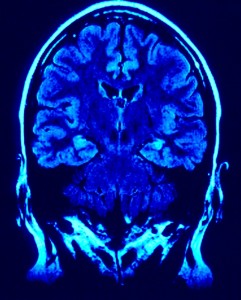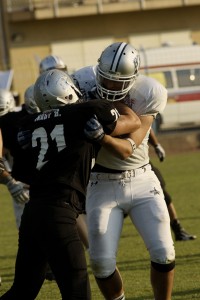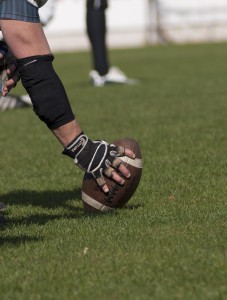 We know that multiple concussions can result in irreparable, long-term damage. Chronic traumatic encephalopathy (CTE), a degenerative disease of the brain, is now a condition that we know results from sustaining repeated traumatic brain injuries (TBIs), both in contact sports and elsewhere. But what about “seemingly mild, concussion-type head injuries” that happen only one time? According to a recent news release from the University of Pennsylvania, researchers now acknowledge that sustaining what we might call a mild TBI actually can “lead to long-term cognitive impairments surprisingly often.”
We know that multiple concussions can result in irreparable, long-term damage. Chronic traumatic encephalopathy (CTE), a degenerative disease of the brain, is now a condition that we know results from sustaining repeated traumatic brain injuries (TBIs), both in contact sports and elsewhere. But what about “seemingly mild, concussion-type head injuries” that happen only one time? According to a recent news release from the University of Pennsylvania, researchers now acknowledge that sustaining what we might call a mild TBI actually can “lead to long-term cognitive impairments surprisingly often.”
Brain Protein Discovered That Signals Cognitive Impairments
According to the news release, researchers have discovered a brain protein known as SNTF. It can show up in the blood after a patient sustains a mild TBI, but it does not show up in all cases of concussions. Researchers believe that the presence of SNTF “signals the type of brain damage that is thought to be the source of these cognitive impairments.” A team of researchers from the Perelman School of Medicine at the University of Pennsylvania and the University of Glasgow (in the UK) recently reported these findings.
 North County San Diego Injury Lawyers
North County San Diego Injury Lawyers












